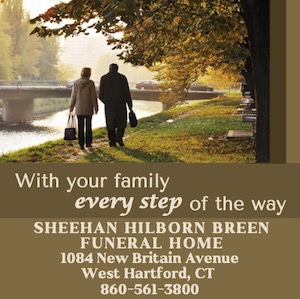
By Shlomo Riskin
“You shall not kindle a fire in any of your dwellings on the Sabbath day” (Exodus 35:3).
The Sages of the Talmud query the significance of this verse; after all, the Bible commands us in several places not to do “any manner of creative, physical activities on the Sabbath day” (Exodus 20:10, for example). In fact, the verse preceding this command not to light a fire on Shabbat says, “whoever does an act of physical creativity on [the Sabbath day] shall be put to death.”
These are generic prohibitions, which include the 39 acts of physical creativity that according to our Oral Tradition are forbidden on Shabbat (Mishna Shabbat 7:2). “Kindling a fire” is one of those 39, so why is it singled out in this week’s biblical portion? Philo Judaeus (c. 20 BCE-c. 50 CE), a great Alexandrian rabbi, exegete and philosopher, provides a fascinating spin on this prohibition: “Do not kindle the fire of anger in any of your dwellings on the Sabbath.”
Allow me to record two anecdotes that will provide an interesting postscript to Philo’s masterful interpretation.
There was a young man studying in the famed Yeshiva of Volozhin, bright and especially gifted of mind and pen, who began to go “off the derech” (the path – that is, lose his way religiously).
He was discovered smoking a cigarette on the holy Shabbat. The head of the yeshiva, Rabbi Naftali Zvi Yehuda Berlin, asked to see the errant student, urging him to mend his ways. The young man audaciously responded that he was merely exercising his gift of free will.
The yeshiva head, who had given his life and finances to the institution – and who continued the difficult task of teaching and fund-raising to maintain his yeshiva even in his later years – was overcome with anger. He slapped the student on the cheek.
The mortified young man left the yeshiva and made his way to America, where he became a well-known author and editor of the Yiddish newspaper, The Jewish Daily Forward. He was for many years bitterly anti-religious, and under his watch, the famous (or infamous) “Yom Kippur Eve parties” were held in the Forward’s building on the Lower East Side.
In the early 1970s, my family and I would vacation in Miami Beach, Fla., where on Shabbat afternoons I would give shiurim (Torah classes) at the Caribbean Hotel. On one particular Shabbat, I was speaking about the Mussar (Ethicist) movement and, specifically, about the famed Rabbi Yisrael Meir Kagan, known as the Hafetz Haim after his book against slander. I invoked a passage in the Talmud (B.T. Arachin 16b), in which Rabbi Tarfon maintains that “no one knows how to properly rebuke in our times; if one person says to another, ‘remove the flint from between your teeth,’ the other will respond, ‘remove the bean from between your eyes.’” However, I added, apparently the Hafetz Haim, who lived 2,000 years after Rabbi Tarfon, did know how to rebuke, and how to bring an errant Jew back to God. It is told that a student in the Yeshiva in Radin (the city of the Hafetz Haim) was caught smoking on Shabbat.
The Hafetz Haim spoke to him for two minutes, and the student not only repented, but even received rabbinical ordination from the Hafetz Haim.
As I concluded my lecture, an elderly gentleman, who had been visibly agitated as I spoke, grabbed my arm and urgently whispered, “Where did you hear that story?” I told him I didn’t remember, and I didn’t even know if it was true. “It is true,” he said. “I was that boy; I was smoking on Shabbat and I have semicha (rabbinic ordination) from the Hafetz Haim.”
We were both overcome with emotion. We left the hotel and silently walked along the beach. Finally, I couldn’t restrain myself. “What did the Hafetz Haim tell you that changed your life in two minutes?” Here is what the elderly man responded, and his words remain inscribed on my soul.
“I was standing in front of the yeshiva with my belongings, ready to leave for home. Standing in front of me was the Hafetz Haim, who took my hand in his and politely asked if I would come to his house. I felt I couldn’t refuse. We walked the two blocks in silence, hand-in-hand, until we reached his home. I entered a very small, dilapidated but spotlessly clean two-room hovel, in which not one piece of furniture was whole.
The Hafetz Haim, who was quite short, looked up at me and said only one word: ‘Shabbes.’ “He gently squeezed my hand as an embrace, and there were tears in his eyes. He repeated again, ‘Shabbes,’ and if I live to be 120 I will never stop feeling the scalding heat of his tears as they fell on my hand. He then guided me to the door. At that moment, I felt in my soul that there was nothing more important than the Shabbat, and that – despite my transgression – this rabbinical giant loved me. I took an oath not to leave the yeshiva without rabbinical ordination from the Hafetz Haim.”
Rabbi Shlomo Riskin is chancellor of Ohr Torah Stone and chief rabbi of Efrat, Israel.








 Southern New England Jewish Ledger
Southern New England Jewish Ledger









